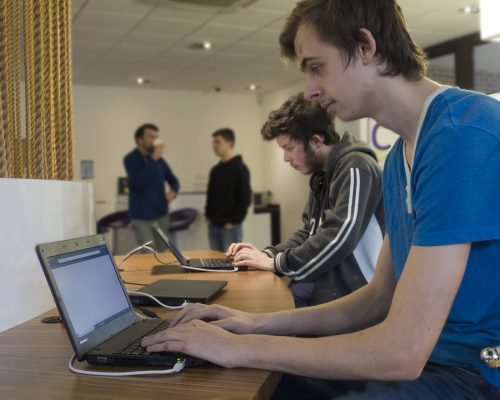 Our future has always been unknown and we have constantly been educating young people in preparation for the jobs of tomorrow, although in recent years the predicted rates of change have reached new proportions.
Our future has always been unknown and we have constantly been educating young people in preparation for the jobs of tomorrow, although in recent years the predicted rates of change have reached new proportions.
I write this article as I prepare to work with students in Years 8 and 9 across Kent who are making their options choices; often seen as their first big decision in choosing their future path. Invariably, their ability to make this decision depends upon the amount of careers preparation which has taken place prior to this. In some schools, a comprehensive package of careers education in Primary and Secondary School has allowed students to understand the depth and breadth of what may be available to them in the future and the world of work. Classically in careers terms, when we look at the DOTS model (Decision Making, Opportunity Awareness, Self-Awareness and Transition Planning), this time of year focusses upon the Opportunities and Decisions being made, with perhaps a little on the Transition into GCSEs.
From experience, what is sometimes missed, is the time for students to reflect on their own values, needs and understanding of what they are preparing for; how their choices fit into the bigger picture and their values. Helping students to make informed decisions isn’t just about showing the students what the various courses are like, placing them in front of them, and then, asking the students what they like and not like (akin to choosing sweets in a sweet shop). Informed choice requires explanation and exploration, so they know what the implications are for the future if they choose one subject over another, and how these choices shape the paths they may take later. For those of us working in education, many of us know where these choices lead and why, what we can’t assume, is that our younger students and their families do. This is the trap we are most at risk of falling into.
We need to see the world from the eyes of those making the decisions. Some students have had no careers education, only learning about “how the world works” from what they have seen of adults in their lives, at home, school, media and the community… with the associated values, context, messages and information varying greatly in accuracy, insight and range. With such a mixed starting point, to make any assumption is dangerous. I have seen students assuming University is the only way to success, worrying about not being smart enough for such a path or only seeing University as an Academic discipline. In contrast, I have seen students that see Apprenticeships and “having a trade” as the only safe path to success; fretting if they can’t choose the right subject at Year 9 because their school no longer offers it. So many layers of assumption and misinformation, hampering students from making decisions with clarity. This is why Careers Education, Information, Advice and Guidance is vital at this point in their lives. With suitable preparation, students can come to their decision points more prepared and more knowledgeable than ever, better able to make their decisions as long as we invest in them.
We provide students with Sex and Relationship Education from aged 11 onwards, helping them to stay safe in relationships. Surely we should be doing the same for them with Careers Education, helping them to stay safe in the world?
In conjunction with providing students with an understanding of what is available, and the implications of this on their later choices, we also need to give them the chance to understand there is more than one way to live a life. I can remember when I was at school, the realisation that different people live different lives came quite late, despite the fact I come from a wonderfully wide and varied family with cousins, uncles and aunts all making very different (but equally brilliant) life choices. It was only when I was given the space and prompting to reflect upon this that I understood I could choose to live a different life from my family if I wanted to (as I was lucky enough to live in a context where this is possible). Having an awareness of where our values come from allows us to reflect and question them; to own them. We can’t assume that all students will adopt the values of their parents/carers or school but we need to provide them with a space to allow them to explore not just what choices there are in the world of work, but how there are different choices in how they choose to live. Yet, there is a wider picture to consider. Not all students have the freedom or cultural space to choose their own path; a series of articles and associated discussions online explores this dilemma further. Ultimately we can offer a space for students to reflect on what may be possible for them, but whilst doing so, we should respect and be sensitive of their cultural values.
In the run up to such choices, let’s give students the space and freedom to discuss and debate: What is it they mean by career? What is it they want from life? What does success mean for them and what is actually meaningful for them? What different strategies for building a career are they aware of and which appeals to them? What sort of design for life do they wish to build?
Choices made in Years 9 and 8 have implications, not just for the potential career path they wish to follow but also the potential lives they wish to lead. Let’s support them with exploring all the implications of the choices they make now, not just whether they like a subject or not.